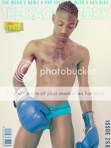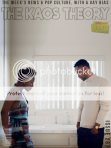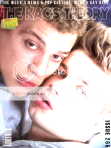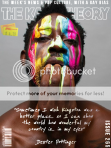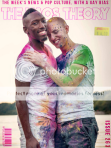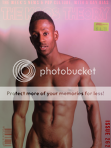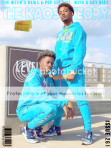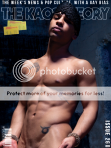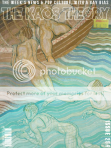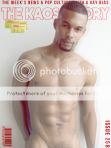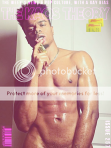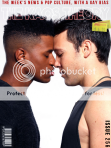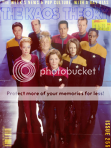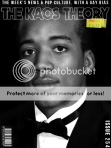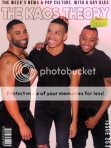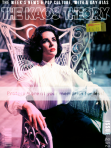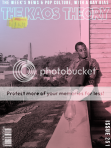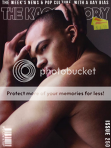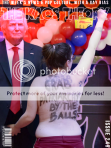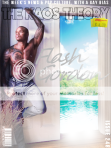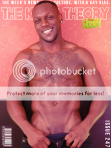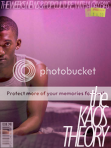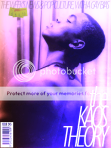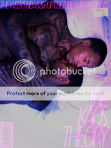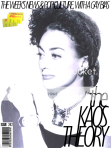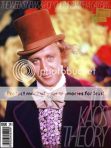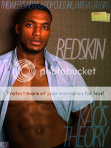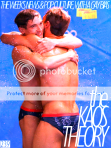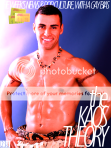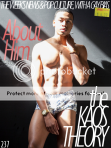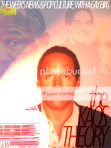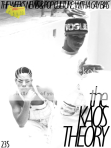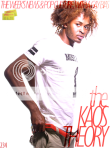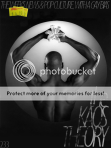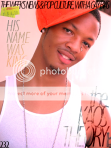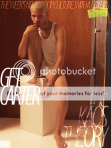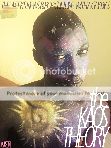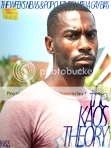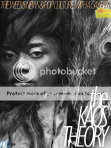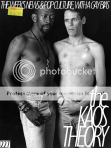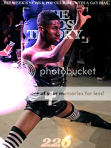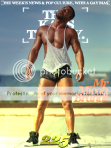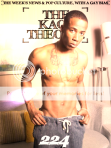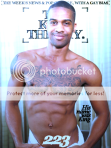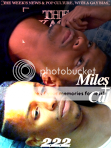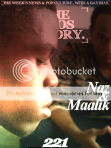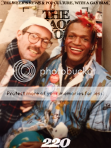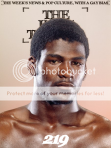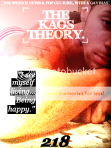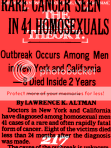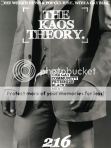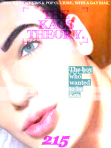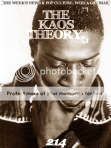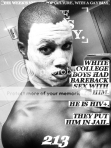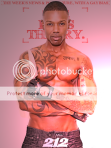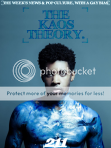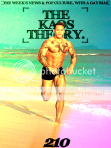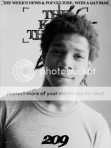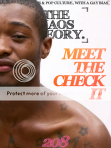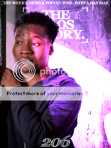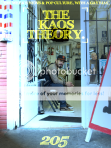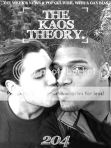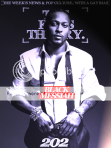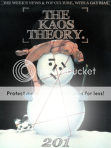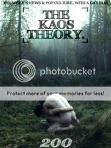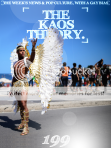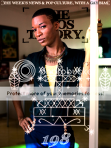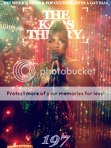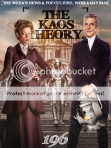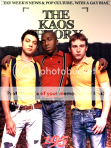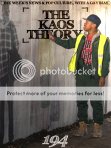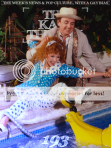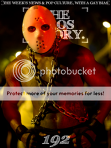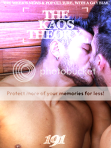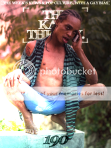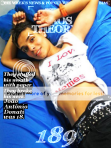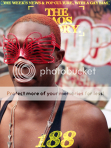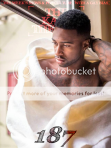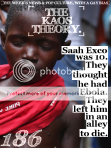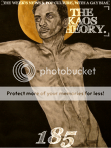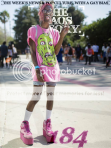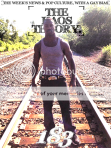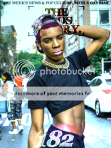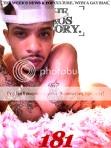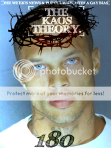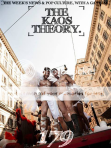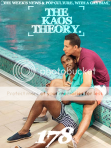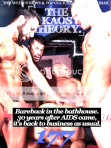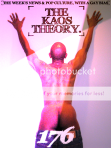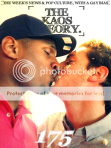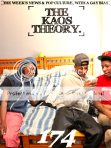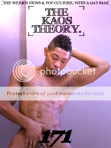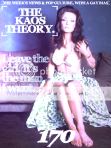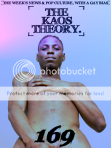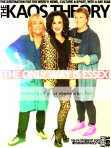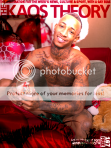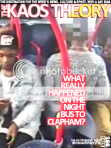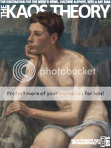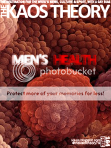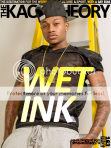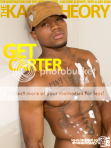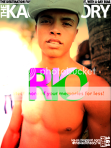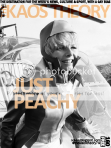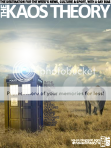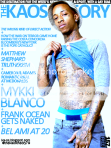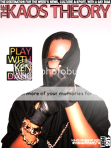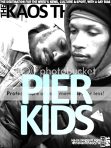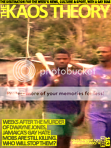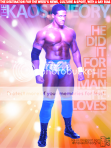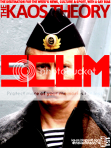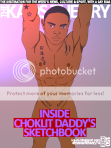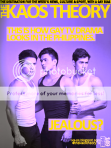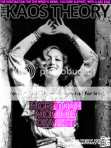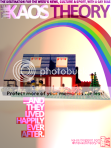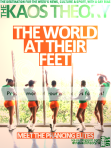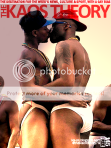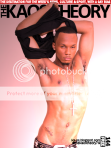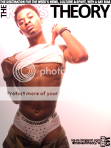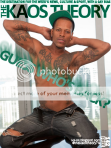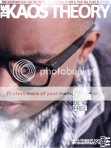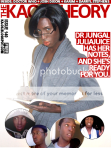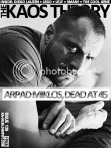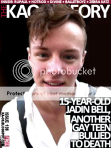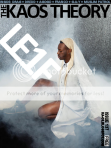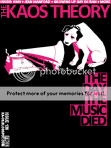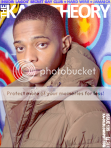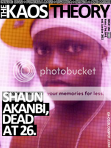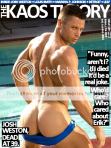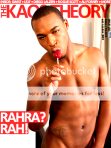 The Ugly Side of Race and Sexuality
The Ugly Side of Race and Sexuality
The main problem with Love The One You're With - like others in this series - is that it takes itself too seriously. The plot - such as it is - is pure soap. Mitchell's partner, Raheim, is out of town, and Mitchell is suddenly faced with an onslaught of attractive men vying for his attention. Naturally, they're all super-attractive, big-booty bruthas desperate for Mitchell, and they're either hyper-masculine or hyper-groomed. This could have been funny, but instead is handled without any modesty by our 'hero' (who is, we're told again and again, attractive and talented in equal measures) that it rapidly becomes both tedious and unbelievable. Conceit and self-importance are a turn-off for most people, and these suitors would turn on the haughty Mr. Crawford as rapidly as the reader does.
In fact, it's the unappealing characters who fill the pages that particularly grate on the nerves. Never before have a pool of such arrogant, vain, judgemental, bitching queens been assembled. Hardy's work has been called 'the black gay Sex And The City' by some. I don't particularly like Sex And The City, so it says a lot that I think it's a serious slur on the television show. At best, Hardy's brand of 'razor sharp wit' is banal carping. At worst, it's a thinly veiled, vicious attack on those whom Hardy judges as the enemy in his war on integration and racial harmony. What are young men of mixed black/white (or any other mix) parentage to make of a book that tells them they are born of a fraud? Or the multitude of men in interracial relationships, who are told they are living a lie? Hardy sets himself up as judge and jury on issues of race and sexuality, and from his position on high, decides what is right and what is wrong. Unfortunately, in his world, everything is black and white. No room is left for men who don't fit his limited view of black or white. It's wrong for a black man and a white man to love one another, apparently, because the white man is simply using the black man to live out slave fantasies. Okay, so what if two mixed-race men love one another? Is that allowed in Hardy's world? Or doesn't mixed-race count as black? How black do you have to be, one wonders, if you can only be one or the other? Is being one quarter black enough, for example? It seems that Hardy's characters prove their 'blackness' by denigrating whites at every opportunity. It's utterly cringe-inducing that every white person encountered in the book, or referred to, is either an out-and-out racist or worse still, rabidly liberal (although Hardy sees no difference between the two. A liberal is merely a redneck in disguise, or at best attempting to salve their guilty conscience).
As an aside, it's also worth noting that Hardy considers it wrong for white men to objectify black men (so it's BAD AND WRONG if they find large lips, dark skin or a big booty attractive), yet Hardy has deemed it okay for his middle-class, sanctimonious lead, Mitchell, to fetishise the down-low, straight-out-tha-ghetto lover, Raheim.
Hardy also over-estimates his own intellectual stature. Take the scene in which Mitchell interviews a black (gay) republican. Mitchell floors the republican with some 'cutting' questions. I'm sorry, but reality check! Almost any politician would have a slick comeback rehearsed - politicians know how to deal with difficult questions, and those Hardy (I'm sorry, Mitchell) puts aren't rocket science. Has Hardy ever actually spoken to a black republican, or read one of the many books penned by them? Hardy wishes to establish Mitchell's, and by extension, his own intellectual standing, yet everyone he meets who dares to have a different opinion is a babbling idiot, unable to make any argument once Mitchell opens his mouth. The reader is left with the distinct impression that Hardy is so righteous that he has never listened to anyone with a different point of view.
His style of writing itself is peculiar. Desperately trying to be hip and trendy, he comes across as patronising and holier-than-thou. If his target audience is young black men (which it clearly is) then he clearly has a low opinion of them. At times it's like reading a lecture by a boring do-gooder. Even his fans have criticised his long, tedious digressions into politics, education, or whichever issue has happened to cross his mind - never mind the fact it's completely unrelated to the plot or what's going on in the novel at the time. There's a particularly bad chapter in a supermarket where Mitchell is standing in line, which tries to come across as a Jerry Seinfeld "have you ever noticed how..." moment, and fails miserably.
There are seemingly endless pages of filler. Trying to up the word count from his last effort, the wafer-thin The Day Eazy-E Died, Hardy gives us lengthy catalogues of the songs played in whichever club the characters find themselves in. He describes in minute detail the menu every time a character has a meal. And there are whole chapters of meaningless fluff, in which Mitchell and Raheim have late night, long distance "I miss you" calls. None of this furthers the plot, or character development, and serves only to antagonise. It's another indication of the author being so in awe of his creations, that he expects his readers to be too. The first novel in this series, published a couple of hundred years ago, it now feels like, was fresh and original, and lacked much (if not all) of the spite and nastiness of its successors. But Hardy has proven himself to be a cynical opportunist, shamelessly flogging this dead horse for all it's worth. Worse still, a sixth (although apparently final) instalment is to follow.
And, after 262 pages of righteousness, we're told that it's okay to cheat on your lover, so long as you don't actually kiss the other man. Well, that's okay then, isn't it? At least it's in keeping with the tone of the rest of the book.
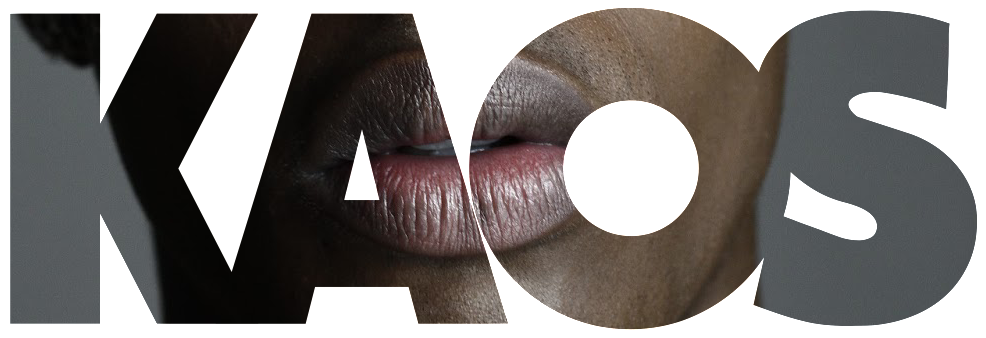














.webp)


.webp)

.webp)











































